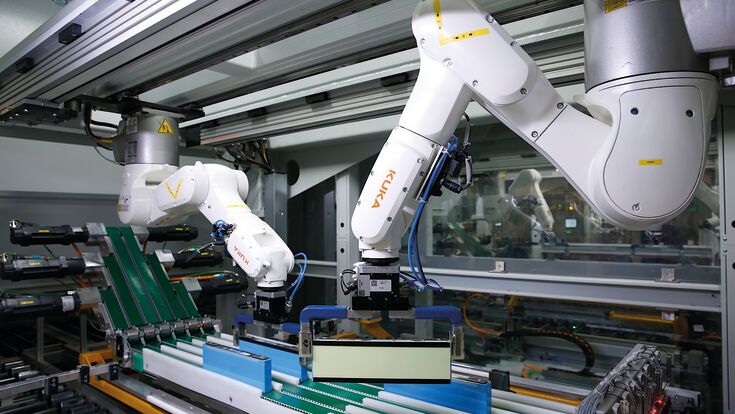Battery Recycling : 5 innovators making the electric vehicle battery more sustainable

EVs will be vital in reducing air pollution and meeting climate change goals. To achieve this, the International Energy Agency (IEA) forecasts that global EV stock will need to grow by 36% a year, reaching 245 million vehicles in 2030.
While EVs do not emit CO2, lithium-ion batteries are made from raw materials such as cobalt, lithium and nickel. The mining of many of these materials can raise ethical and environmental concerns and some of these metals could face a global shortage given potential battery demand.
Additionally, while nearly all - 99% - of lead batteries are recycled, few lithium ion batteries are. According to some estimates, the rate could be less than 5%.
This is in part because lithium ion batteries can be costly and difficult to recycle. As a recent article in Wired put it: "while you can re-use most parts in EVs, the batteries aren’t designed to be recycled or reused." Once in landfills, metals from the batteries can contaminate both water and soil.
The International Energy Agency (IEA) estimates that the automotive battery capacity available for repurposing will grow by 560% by 2030. With rapidly expanding demand, batteries present a serious waste-management challenge.
These gaps show a growing need for better processes to manufacture and dispose of batteries as well as better ways to preserve virgin materials. Here are five organizations offering solutions.
Further reading: Battery Recycling, an industry under power (Batterierecycling: Eine Industrie unter Strom).
1. Redwood Materials
Nevada-based Redwood Materials aims to become the world’s top battery recycling company. It also hopes to create a circular or ‘closed loop’ supply chain by retrieving, recycling and recirculating raw materials such as cobalt, copper and nickel from end-of-life batteries.
Redwood uses a combination of pyrometallurgy – burning batteries to remove unwanted organic materials and plastics – and hydrometallurgy, which uses leaching to soak lithium-ion cells in acids to dissolve the metals into a solution.
In 2020, the company was on target to recycle more than 1GWh-worth of battery scrap materials.
2. Li-Cycle
Li-Cycle describes itself as a closed-loop lithium-ion resource recovery company and, like Redwood Materials, wants to make EV batteries truly sustainable products.
The Canadian company claims that a cumulative worldwide total of 1.7 million tonnes of lithium-ion batteries were due to reach their end of life by 2020. It expects this figure to rise to about 15 million tonnes by 2030.
Li-Cycle bypasses the smelting process and uses only leaching to contribute to the circular economy by recovering more than 95% of all raw materials found in lithium-ion batteries.
>> Find more here: Li-Cycle to build new Lithium-ion Battery Recycling Facility in Arizona <<
3. Aceleron
UK-based clean technology company Aceleron uses new technology to create what it claims are the world’s most sustainable lithium battery packs.
“The reason why we have such a challenge today with reusing a lot of batteries is actually that many of them were not made with the next stage of their life in mind,” Aceleron co-founder and CTO Carlton Cummings told The Telegraph.
Creating batteries that are easier to disassemble will encourage reuse and support a circular ecosystem, says Cummings. It will also create additional storage capacity as batteries could be repurposed to help store electricity at EV charging points.
4. ReCell Center
The US Department of Energy’s ReCell Center is a collaboration of academia, industry and national laboratories working to improve lithium-ion recycling techniques.
It aims to make battery recycling profitable through recovery of high-value materials and designing processes to optimize yield, productivity and cost.
The ReCell Center also hopes that using science-based strategies to create economical lithium-battery recycling could cut waste, create jobs and reduce US reliance on foreign supplies of raw materials.
5. Global Battery Alliance
The World Economic Forum’s Global Battery Alliance (GBA) is a public-private collaboration of organizations which argue that a circular battery value chain is a key way of realizing the Paris Agreement’s 1.5C climate goal in the transport and power sectors.
The GBA also estimates that batteries could enable 30% of required cuts in carbon emissions in the two industries to reach the 2° goal of the Paris Agreement. They could also provide 600 million people with access to electricity and create 10 million sustainable jobs worldwide – by 2030.
Its Battery Passport initiative seeks to create a digital representation of a battery that will provide consumers with a “quality seal” in terms of sustainability.
This article was published on the website of the World Economic Forum and written by Natalie Marchant.
